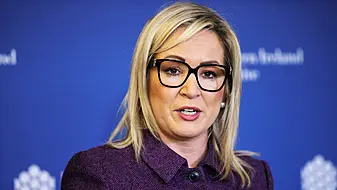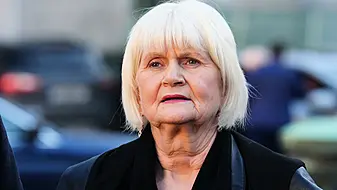Two Georgian nationals who facilitated human trafficking by providing people with false documentation in order to travel to the State have been sentenced.
Vakjtang Jokhadze (48) and Sophia Grdzelishili (46), who are legally divorced but reside together, acted as a “distribution network” to provide Georgian nationals with fake driving licences and identification cards from EU countries.
Dublin Circuit Criminal Court heard they received orders for false documents which would be passed on to someone who would create them. The accused would then post the false documents to their customers in various European countries.
The court heard it was not the case that people were coerced or forced to travel to the state for “nefarious purpose” such as prostitution or forced labour, but rather that “asylum seeking” and economic migration were the causes of the illegal immigration.
Plea
Jokhadze and Grdzelishili, both with an address at St Jarlaths Road, Cabra, Dublin, pleaded guilty to facilitating the trafficking of illegal immigrants within the State on respective dates between June 1st, 2019 and June 26th, 2019, and October 30th, 2019 and December 10th, 2019.
Jokhadze also pleaded guilty to money laundering, making a gain by deception and possession of false instruments at various locations in Dublin on dates between August 29th, 2012 and June 26th, 2019.
Gredzelishili also pleaded guilty to possession of false instruments at her address on October 30th, 2019 and December 10th, 2019.
Garnet Orange SC, prosecuting, told the court that it was the prosecution's case that all other offences were committed in order to facilitate the offences of human trafficking.
Passing sentence on Friday, Judge Martin Nolan said that for the service of facilitating illegal immigration into this country, the accused were paid “considerable” quantities of money.
Judge Nolan said the individuals using the services of the accused were not “downtrodden or vulnerable people”. He said they were people from Georgia who wanted to “improve their financial lots” and “escape” a country they did not want to live in.
He added that as human trafficking goes, this is not of a “sinister variety”.
'Serious matter'
Judge Nolan said what they both did was “quite serious” and to facilitate illegal immigration on this scale “is a serious matter”.
He said a court must “engage in a balancing” act where there is a dependent child. He said this was not such a serious case that it would require the court to adopt a course of imprisonment if it would “seriously damage” an innocent child by doing so.
The judge sentenced Jokhadze to four years imprisonment, which he backdated to when the accused first went into custody in October 2019.
He sentenced Grdzelishili to three years imprisonment, but suspended the sentence in its entirety on strict conditions.
Judge Nolan said if it were not for Grdzelishili having a teenage son, for whom she is the primary carer, she would be going to prison as he thought she deserved a custodial sentence.
During the sentencing hearing, Detective Sergeant Anthony Collins told Mr Orange that in the latter part of the last decade, a garda investigation commenced in relation to the illegal trafficking of people into the State, specifically focused on Georgian nationals.
Packages
Det Sgt Collins said the two accused were not the initial targets of the investigation. He said they came to the attention of gardaí as the GPO was being used by numerous organisations gardaí had an interest in and Jokhadze was observed sending packages.
In June 2019, the accused man attempted to post four packages in the GPO to various European countries. These packages were seized and found to contain collectively 15 false documents purporting to have been issued in several EU countries.
Det Sgt Collins explained that a criminal process that had been ongoing for 12-18 months prior to the accused's arrest involving people who were seeking false documents contacting the accused via messaging applications and being quoted a price list for various documents.
The accused acted as middle men in the process or as the “distribution network”, receiving the orders and then passing them on to the person who would make the false documents. The accused would then post the false documents to the customers in various locations in Europe.
Det Sgt Collins said that in general, these customers were Georgian nationals wishing to travel to Ireland in order to seek asylum, to simply live in the State or to travel to the UK.
They were provided with false documents purporting to be from Slovakia, Romania, Latvia or Lithuania, as EU documents received less scrutiny. The documents were of high quality and would pass muster for cursory inspection despite missing some security features.







